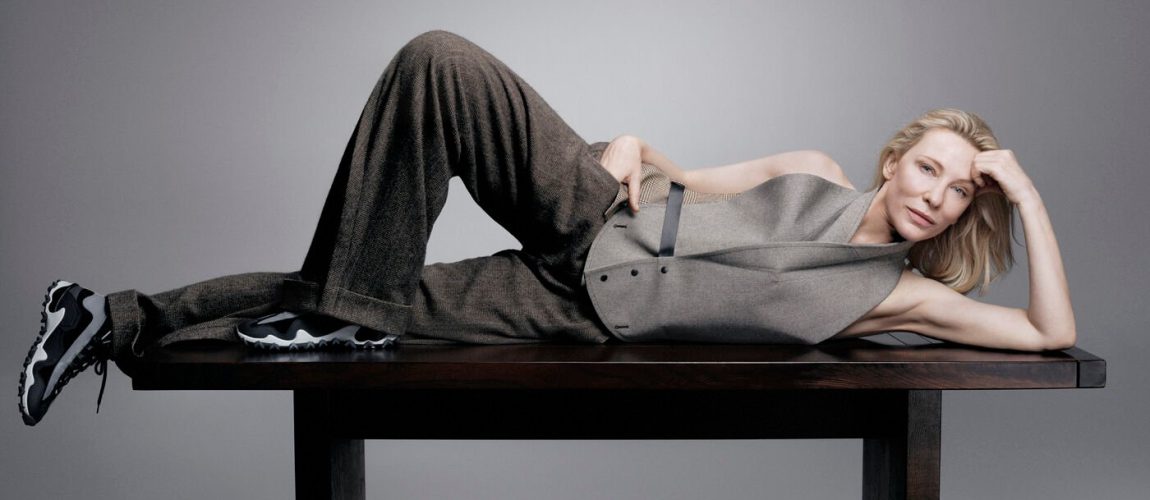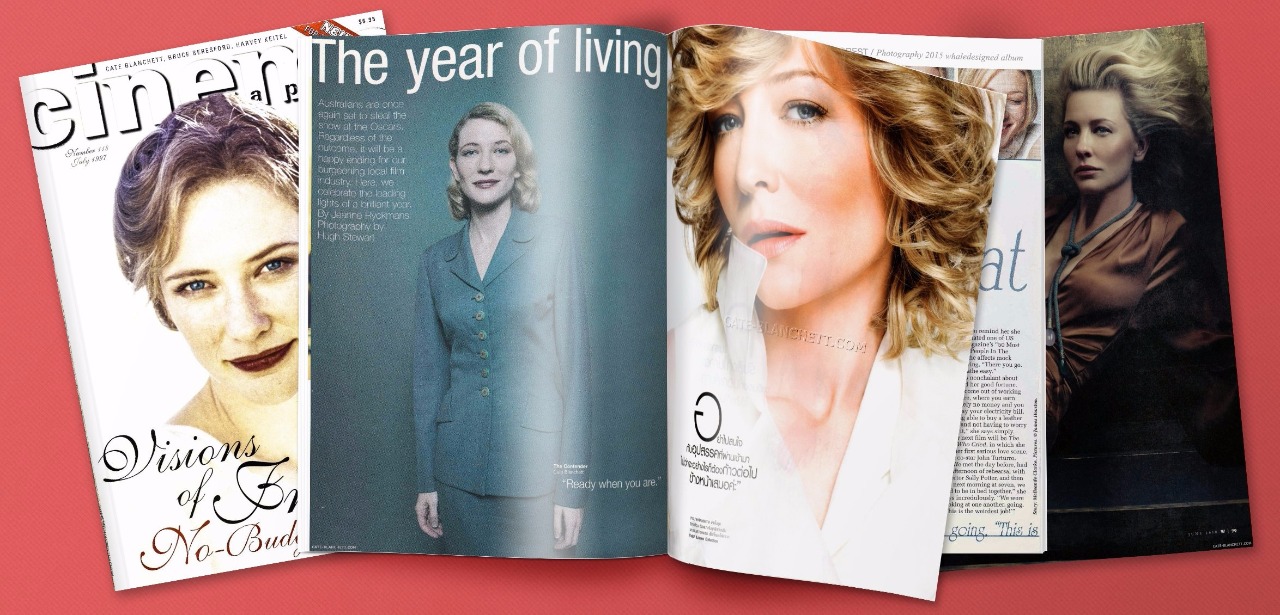Mastermind No. 14 Issue which features Cate Blanchett on two covers is now available in stores in London and other European cities. The latest issue has a 20-page feature on Cate where she talks about film and theatre.
Magazines can be purchased on the following sites: KD Presse, MagCulture, Sugar, Under the Cover
Also available at Shreeji Newsagent and Good News (Soho, London).
Part of the interview by Serge Kaganski
Cate Blanchett: I was in a production of A Streetcar Named Desire directed by Liv Ullmann with the Sydney Theatre Company. We toured to New York and Washington after a long season in Australia. I had never met Woody. I had never received a script from him, and I thought, “Oh well, there are some directors who are just not interested in your work, and that’s okay.” Then I suddenly received the script for Blue Jasmine while playing Blanche DuBois. Totally out of the blue. There are so many parallels with this character and the character of Jasmine: someone who has been corrupted and destroyed by money; someone who’s had the poetry rung out of them. I had the building blocks of the Jasmine character in my body. Famously, Woody Allen works incredibly fast, and I am quite slow, so I was grateful for having the time spent with the character archetype in the theater.
Serge Kaganski: Six years after #MeToo and the Weinstein case, how do you feel about women’s place in the cinema industry?
C.B.: How do I feel about it? Well, it depends on who I speak with, as there are so many different perspectives. It’s a conversation that we continue to need to have, clearly, because you were asking me about it and it’s good to have robust arguments about, not just the work itself but also the way in which we make the work. Utopia will never be achieved, and work should be dangerous and electric and exciting, but the workplace shouldn’t be dangerous and exclusive. It doesn’t have to be this way. It’s just a product of lazy thinking.
S.K.: Social changes are always slow, but I hope we are improving…
C.B.: I hope so, too. Social changes, lasting social changes, are always slow and deep. The point is to make everyone own the changes so there isn’t a hideous backlash. We have to learn from the discourse of the past – how problems and challenges weren’t owned by everyone, which can produce a lot of exhaustion and rage. Rage is a very understandable emotion for people who have been shut out of the conversation, or who have been abused or misused by any system in which they work. But it’s up to everyone to listen to and then harness this rage, productively in service to the work. And to make lasting changes. It’s up to all of us. Not just women.
S.K.: You are also a movie producer. Is that a way of getting empowerment? Do you feel that female actors don’t have the power they should have in the film industry?
C.B.: I couldn’t be less interested in power. It can be an incredibly corrupting force. I’m much more interested in collaboration; I always have been. I’ve never been interested in my role alone on stage or on screen. I’m interested in the conversation. I guess that’s why I’ve played small roles in bigger films, for example: to be part of the conversation. I do think creative producing – with a producer who doesn’t just secure the financing, someone who is able to discuss creative decisions with the filmmaking team and understand how the film is actually put together, through development to production to postproduction to marketing – that type of creative producer is a rare breed, but that’s what I’m interested in: the creative process in its entirety. I’m not interested in power.
S.K.: For a long time, Hollywood female movie stars were designed to please male audiences. Do you feel that you embody a new kind of movie star, more independent from male domination?
C.B.: I don’t think Katharine Hepburn was designed for the male gaze. She was wildly individual, as was Bette Davis. One thing is certain that there was certainly a sense of mystery to movie stars of the past. Male and female. A little bit of mystery is very important to preserve for the audience. A sense of wonder about what is going happen on screen. Personally I don’t want to know about the actor’s or director’s personal lives, politics or whatever. For me, I’m just focused on the world around me and the next surprise.






 A Manual for Cleaning Women (202?)
A Manual for Cleaning Women (202?) Father Mother Brother Sister (2025)
Father Mother Brother Sister (2025)  Black Bag (2025)
Black Bag (2025)  The Seagull (2025)
The Seagull (2025) Bozo Over Roses (2025)
Bozo Over Roses (2025) Disclaimer (2024)
Disclaimer (2024)  Rumours (2024)
Rumours (2024)  Borderlands (2024)
Borderlands (2024)  The New Boy (2023)
The New Boy (2023) 











